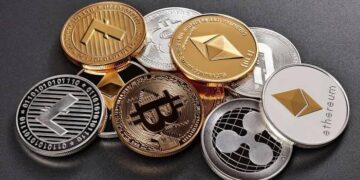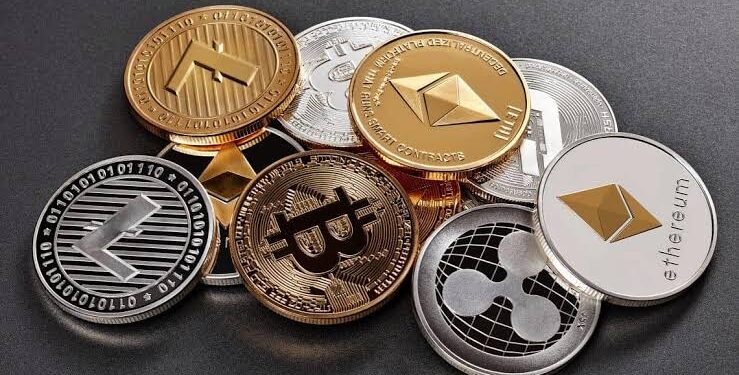By John Ikani
Nigeria’s Securities and Exchange Commission (SEC) has released new rules for digital assets, offering more clarity on trading in cryptocurrencies in Africa’s most populous nation.
This was contained in a recently released document titled, “New Rules on Issuance, Offering Platforms, and Custody of Digital Assets” essentially legalizing digital assets such as cryptocurrencies in Nigeria.
The move comes months after SEC Director-General’s Lamido Yuguda had in September 2021 declared that a department had been established to investigate the crypto market.
The rules may help boost trading by giving more clarity on the sector in a country that already ranks as among the biggest markets for digital assets. Nigeria accounts for the largest volume of cryptocurrency transactions outside the U.S., according to Paxful, a Bitcoin marketplace.
Last year, the central bank ordered commercial lenders to stop transactions or operations in cryptocurrencies, citing a threat to the financial system. The SEC said at the time it would seek to protect investors and make the market more transparent.
According to country manager for Nigeria at cryptocurrency exchange Luno, Owen Odia, the regulations “could act as the precursor for a surprise move from the central bank to reverse its approach, providing critical foundations for mass crypto adoption across the country.”
What are the regulations?
The new rules cover the issuance of digital assets as securities, the registration of platforms and digital asset custodians, exchanges and virtual assets service providers.
The new regulation creates roles for different players in the digital asset space, each playing a key role in the new sector.
• The new regulations essentially classify digital assets as securities providing other regulators such as the Central Bank of Nigeria.
• SEC defined “Digital Assets” as “a digital token that represents assets such as a debt or equity claim on the issuer”.
• SEC also defined Securities Token Offering – Securities Token Offering (STO)” means any offering and sale of digital tokens that are considered securities.
• SEC defined the Digital Assets Offering (DAO) Platform as an electronic platform controlled by a DAO operator that hosts a DAO.
While a Digital Asset Custodian is defined as a business that provides safekeeping, storage, holding, or maintenance of virtual/digital assets for the account of another person.
Key Highlights of the regulation
On Filing the initial application
• All promoters, entities, or businesses proposing to conduct initial digital asset offerings within Nigeria or targeting Nigerians, are expected to submit the assessment form and the draft white paper.
• White papers are expected to include disclaimers stating the following in bold capital letters “THE SECURITIES AND EXCHANGE COMMISSION HAS NOT APPROVED THESE TOKENS OR DETERMINED IF THE TOKENS ARE SECURITIES AND THUS, SHALL BE REGISTERED, OR THAT THE CONTENT OF THE WHITEPAPER ARE ACCURATE AND COMPLETE. ANY FALSE OR MISLEADING REPRESENTATION IS A CRIMINAL OFFENCE AND SHOULD BE REPORTED IMMEDIATELY TO THE SECURITIES AND EXCHANGE COMMISSION”
• The commission will review applications within a period of 30 days and give its written feedback within 5 days after the review.
On Registration
• After SEC has determined that the digital asset is a security, the issuer will apply for registration.
The registration document will include the name of the tokens, the ticker, price, amount, and the number of tokens.
• They will also need to provide solicitors’ opinions and corporate governance disclosures.
There will also need to be an escrow agreement with an independent Custodian/Trustee registered with the Commission.
On Moratorium on Equity Interest
• SEC also includes a provision that ensures the issuer’s directors and senior management shall, in aggregate, own at least 50% equity holding in the issuer on the date of the issuance of the digital assets.
• This essentially commits the sponsors of ICOs to own half of the entity that is issuing the security.
• On Post issuance, it also states that “the issuer’s directors and senior management may sell, transfer or assign not more than 50%; provided that the quantum of equity being sold, transferred or assigned shall not be more than 50% of their respective holdings until completion of the initial digital asset offering project.”
Limitation to funds being raised
• The regulation provides that issuers may only raise funds within the limit of N10 billion. However, it states that SEC can increase or decrease the ceiling from time to time.
• “An issuer may only raise funds subject to the following limit: Twenty times the Issuer’s shareholders’ funds i.e., the maximum quantum of funds permitted to be raised within any continuous 12- month period, subject to a ceiling of N10 billion or any other ceiling as the Commission may determine from time to time.”
• SEC also states that in the event that the raise fails to meet its soft cap (defined as the minimum raise) it “shall refund all monies collected from the token holders within five (5) business days from the offer closing date.”
Investment Limits
• The SEC regulation also stated the maximum amount retail investors can invest in the digital asset offering.
• For qualified institutional and high net worth investors, no restriction on investment amount;
For retail investors, a maximum of N200,000 per issuer with a total investment limit not exceeding N2 million within a 12-month period
Other highlights
• For Digital Assets Offering Platforms (DAOPs) looking to operate in the market, SEC requires that they file and pay an application fee of N100km Processing fee of N300k, and a registration fee of N30 million.
• There is also a sponsored individual fee of N100k. They will also need to have a minimum paid-up capital of N500 million and will be required to provide a current “Fidelity Bond” covering 25% of the minimum paid-up capital as stipulated by the Commission’s Rules and Regulations.




































